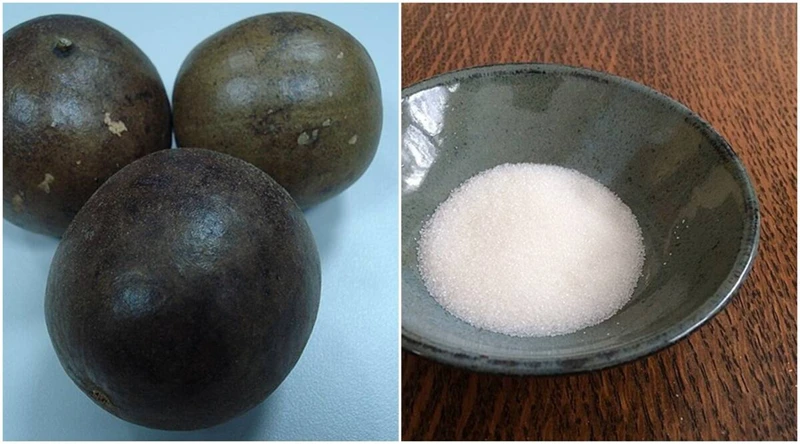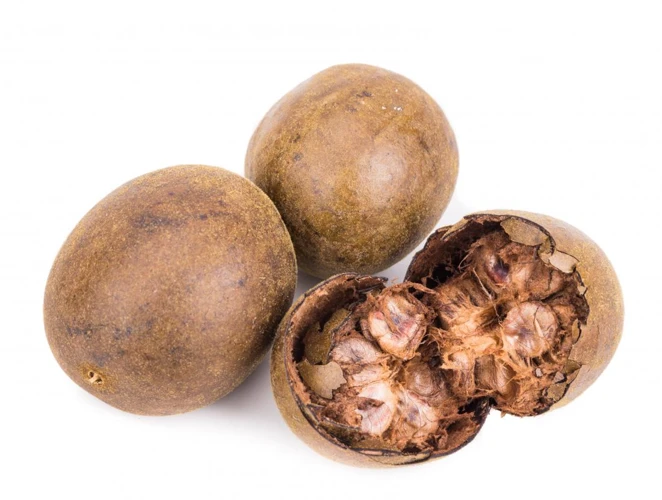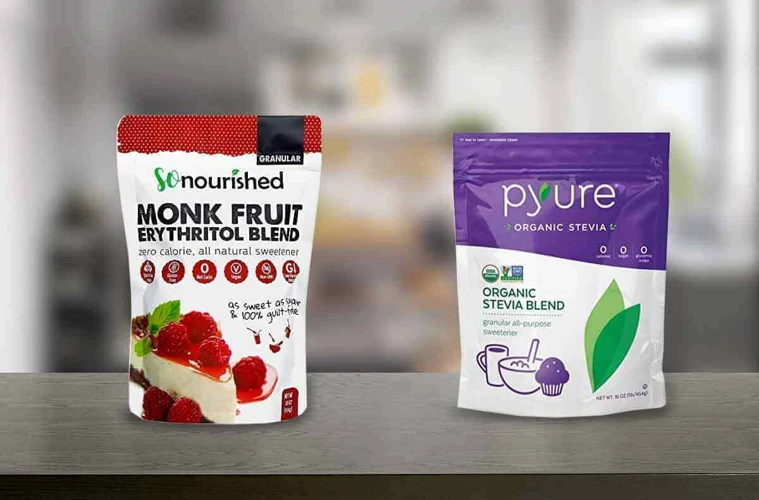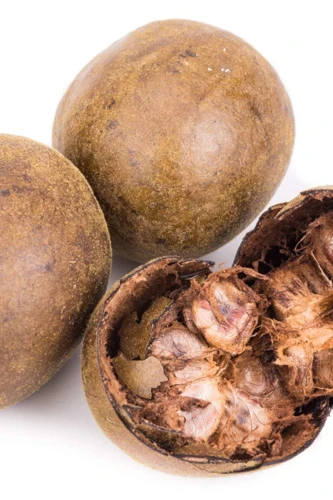As individuals become more health-conscious and seek alternatives to sugar, the market for sugar substitutes has exploded with various options. One of the latest natural sweeteners to gain popularity is Monk Fruit Extract. With its zero-calorie content and natural origins, many people are curious about how it compares to other sugar substitutes available on the market. In this article, we will delve into the world of sugar substitutes, explore what Monk Fruit Extract is, compare its attributes to other popular sugar substitutes, and provide insight on how to incorporate it into your diet. So, let’s explore the world of sweeteners together and see what Monk Fruit Extract has to offer!
Understanding Sugar Substitutes

For those looking to cut their sugar intake, the world of sugar substitutes can seem overwhelming. There are artificial sweeteners and natural sweeteners, each with their own unique properties and potential benefits and drawbacks. It can be perplexing to understand which type of sweetener is the best fit for your lifestyle and dietary needs. Let’s dig deeper into the world of sugar substitutes and understand the differences between them.
Artificial Sweeteners
When it comes to sugar substitutes, artificial sweeteners are a common option. These sweeteners are typically made from chemicals and can be many times sweeter than regular sugar. Below is a table comparing some of the most popular artificial sweeteners on the market:
| Sweetener | Sweetness | Calories per gram | Commonly Used In |
|---|---|---|---|
| Aspartame | 200 times sweeter than sugar | 0 | Diet sodas, chewing gum |
| Sucralose | 600 times sweeter than sugar | 0 | Baked goods, diet sodas |
| Saccharin | 300 times sweeter than sugar | 0 | Diet sodas, tabletop sweeteners |
| Acesulfame Potassium | 200 times sweeter than sugar | 0 | Diet sodas, powdered drink mixes |
While these artificial sweeteners may have zero calories, they have been linked to potential health risks such as weight gain and even cancer. Additionally, some people find that artificial sweeteners have a bitter aftertaste that can be unpleasant. As a result, many people are turning to natural sweeteners, including monk fruit extract, as a healthier alternative.
Natural Sweeteners
When it comes to natural sweeteners, there are several options available. These natural alternatives are often used as healthier substitutes for traditional table sugar. Let’s take a closer look at some of the most popular natural sweeteners available:
| Honey | A thick, sweet liquid produced by bees from the nectar of flowers. Honey contains antioxidants and has antibacterial properties. It is high in calories and should be used in moderation. |
| Stevia | A plant-derived sweetener that is much sweeter than sugar. Stevia is calorie-free and has no effect on blood sugar levels. It is a popular choice for those with diabetes or those looking to reduce their sugar intake. |
| Agave nectar | A natural sweetener derived from the agave plant. It is sweeter than sugar but has a lower glycemic index, meaning it doesn’t cause spikes in blood sugar levels. However, it is high in fructose and should be used in moderation. |
| Maple syrup | A sticky, sweet syrup made from the sap of maple trees. Maple syrup contains antioxidants and minerals such as zinc and manganese. However, it is high in calories and should be used sparingly. |
While these natural sweeteners may seem like healthier alternatives to sugar, it’s important to remember that they should still be consumed in moderation. Additionally, each natural sweetener has unique properties that can affect taste and texture when used in baking or cooking. It’s a good idea to experiment with different types of natural sweeteners to find the best one for your needs.
What is Monk Fruit Extract?

Monk fruit extract, also known as luo han guo, is a natural sugar substitute derived from the monk fruit, native to southern China. The Chinese have been using monk fruit for centuries as a natural remedy for colds, coughs, and sore throats.
Monk fruit extract is created by removing the seeds and skin of the fruit and crushing the pulp to collect its juice. The juice is then processed and dried to form a concentrated powder that can be up to 200 times sweeter than regular sugar.
One of the main benefits of monk fruit extract is that it does not contain any calories. This makes it an excellent alternative for people looking to reduce their caloric intake, such as people with diabetes or those looking to lose weight. Additionally, monk fruit extract is also low on the glycemic index and has no impact on blood sugar levels, making it a suitable substitute for people with diabetes.
Monk fruit extract contains natural antioxidants called mogrosides, which have been shown to have anti-inflammatory and anti-cancer properties. These properties make monk fruit extract a healthier alternative to artificial sweeteners, which have been linked to negative health effects in some studies.
Given its many benefits, monk fruit extract has gained popularity as a sugar substitute in recent years, and you can find it in many health stores and online retailers. However, it is important to note that as with any other supplement, one should consult with a healthcare professional before incorporating monk fruit extract into their diet.
How Does Monk Fruit Extract Compare?

When it comes to sugar substitutes, the options seem endless. Each has its own unique properties and benefits, making it challenging to choose the right one. However, one particular sweetener that has gained popularity in recent years is monk fruit extract. But how does it stack up against other sweeteners in terms of sweetness, taste, texture, and nutritional value? Let’s take a closer look at how monk fruit extract compares to other sugar substitutes.
Sweetness
When it comes to sweetness, monk fruit extract stands out as one of the most powerful natural sugar substitutes available. It is estimated to be around 150-200 times sweeter than sugar, which means that only a small amount is needed to bring sweetness to recipes. In comparison, table sugar has a sweetness level of 1.
Other popular natural sweeteners such as honey, maple syrup, and agave nectar are also sweeter than table sugar, but not as potent as monk fruit extract. Honey is approximately 1.5 times sweeter than sugar, while maple syrup and agave nectar have a sweetness level that is around 1.4 times that of sugar.
Artificial sweeteners like saccharin, aspartame and sucralose are even sweeter than monk fruit extract. For instance, saccharin is 300-500 times sweeter than sugar, while aspartame is around 200 times sweeter, and sucralose is 600 times sweeter.
However, it is important to note that sweetness levels can vary depending on the brand of monk fruit extract or sweetener used. Some may be more concentrated or have added ingredients that can affect the sweetness level. As always, it is best to use sweeteners in moderation and follow recipe guidelines.
Below is a table showing the sweetness levels of popular sweeteners in comparison to sugar:
| Sweetener | Sweetness Level (compared to sugar) |
|---|---|
| Monk Fruit Extract | 150-200x |
| Saccharin | 300-500x |
| Aspartame | 200x |
| Sucralose | 600x |
| Honey | 1.5x |
| Maple Syrup | 1.4x |
| Agave Nectar | 1.4x |
Taste
When it comes to taste, Monk Fruit Extract offers a unique flavor profile that sets it apart from other sugar substitutes. One of the benefits of Monk Fruit Extract is that it doesn’t leave behind a bitter aftertaste that is commonly associated with other sugar alternatives. Instead, it has a natural sweetness that comes from the mogrosides, which are the active compounds found within the fruit.
Monk Fruit Extract Taste Comparison
To better understand the benefits of using Monk Fruit Extract as a sweetener, it’s helpful to compare it to popular alternatives such as stevia and erythritol.
| Monk Fruit Extract | Stevia | Erythritol | |
|---|---|---|---|
| Taste | Natural sweetness with no bitter aftertaste. | Mildly sweet but can have a bitter aftertaste. | Less sweet with a cooling effect and can have a slight aftertaste. |
As seen in the table, Monk Fruit Extract provides a taste that is unique from other sugar substitutes. It offers a natural sweetness without any added bitterness, unlike stevia which can sometimes have a bitter aftertaste. Erythritol, while less sweet than Monk Fruit Extract or stevia, has a cooling effect and can sometimes leave behind an aftertaste.
Monk Fruit Extract Taste in Recipes
When using Monk Fruit Extract as a replacement for sugar in recipes, it’s important to note that it can be up to 200 times sweeter than table sugar. This means that adjustments may need to be made to recipes to account for the increased sweetness.
To fully enjoy the flavor of Monk Fruit Extract, it’s recommended to use it in recipes that complement its natural taste. For example, it pairs well with fruits like strawberries or raspberries and complements the flavor of vanilla and cinnamon.
Monk Fruit Extract offers a unique and enjoyable flavor that makes it a great alternative to sugar and other artificial sweeteners. Its natural sweetness and lack of bitter aftertaste make it a popular choice for those looking to reduce their sugar intake without sacrificing taste.
Texture
When it comes to the texture of monk fruit extract compared to other sugar substitutes, there are a few key differences to consider. Here are some points to keep in mind:
- Unlike granular sugar substitutes such as erythritol or xylitol, monk fruit extract is a liquid.
- This means that it can be more difficult to use in certain recipes, especially those that require the texture of sugar to achieve the desired outcome.
- However, because it is a liquid, monk fruit extract can be easier to incorporate into certain recipes where a dry ingredient might not blend as well.
- It’s important to note that the texture of monk fruit extract itself is not sticky or syrupy like other liquid sweeteners such as honey or maple syrup.
- This can be a drawback if you are looking for a substitute that will add body and thickness to a recipe.
- On the other hand, the lack of viscosity can be an advantage in recipes where you don’t want the sweetness to overwhelm the other flavors or textures.
- The texture of monk fruit extract is a unique characteristic that may or may not be suitable for all recipes.
In summary, the liquid texture of monk fruit extract can be both an advantage and disadvantage in certain recipes. While it may not have the body or viscosity of other liquid sweeteners, it can be easier to incorporate into certain dishes and may not overwhelm other flavors or textures.
Calories and Nutritional Value
When comparing Monk Fruit Extract to other sugar substitutes, it is important to take into account the calorie and nutritional content, as well as the benefits and drawbacks of each option. Here is a table highlighting this information:
| Sugar Substitute | Calories per teaspoon | Nutritional Information |
|---|---|---|
| White Sugar | 16 | Contains no vitamins or minerals |
| Honey | 21 | Contains small amounts of vitamin C, calcium, and iron |
| Agave Nectar | 20 | Contains small amounts of vitamins and minerals, but high levels of fructose may increase the risk of insulin resistance |
| Stevia | 0 | Contains no vitamins or minerals |
| Monk Fruit Extract | 0 | Contains antioxidants and has been used in traditional Chinese medicine for its anti-inflammatory properties |
As can be seen from the table, Monk Fruit Extract is a zero-calorie sweetener and contains antioxidants that have been shown to have anti-inflammatory properties. This makes it a more versatile option for those who want to maintain a healthy diet without sacrificing flavor. While some natural sweeteners like honey and agave nectar may contain small amounts of vitamins and minerals, they are also high in calories and may have negative effects if consumed in excess. On the other hand, artificial sweeteners like stevia have no calories, but they are also lacking in vitamins and minerals and may have a bitter aftertaste.
Using Monk Fruit Extract in Recipes

When it comes to using monk fruit extract in recipes, it is important to note that it is much sweeter than sugar, so less is needed. Most brands of monk fruit extract suggest using about one teaspoon of extract for every cup of sugar in a recipe.
Additionally, because monk fruit extract is a powder or liquid, it may require some adjustments to the liquid content of recipes, particularly in baked goods. For example, you may need to add a bit more liquid (such as milk or applesauce) to balance out the dryness that the extract can cause.
When using monk fruit extract in recipes, it is important to remember that it is not a sugar substitute that caramelizes in the same way that sugar does. This means that certain recipes may need to be adjusted to achieve the desired texture and flavor.
However, it is possible to use monk fruit extract in a variety of recipes, from baked goods to hot beverages. It can be particularly useful for those who are diabetic or looking to cut back on sugar intake without sacrificing sweetness in their favorite treats.
Using monk fruit extract in recipes can be a healthy and tasty alternative to traditional sugar, but it may require some experimentation and adjustments to get the results you desire.
Managing Cravings While Losing Weight
Losing weight can be a challenging process, especially when it comes to managing cravings for sweet foods that are often high in calories. However, using monk fruit extract as a sugar substitute can help individuals satisfy their sweet tooth without compromising their weight loss goals.
Monk fruit extract is a zero-calorie alternative to sugar, making it a great option for those who are trying to lose weight. Additionally, it has been found to have no effect on blood sugar levels, making it a suitable choice for people with diabetes or those looking to reduce their sugar intake for health reasons.
Replacing sugar with monk fruit extract can also help to reduce overall caloric intake, as sugar is a common source of empty calories in the Western diet. By reducing the number of empty calories consumed, individuals can manage their weight more effectively.
Another benefit of using monk fruit extract to satisfy cravings is that it is an all-natural alternative to artificial sweeteners, which have been linked to potential negative health effects. Monk fruit extract is derived from the pulp of the monk fruit, which has been used for centuries in traditional Chinese medicine as a natural sweetener and for its potential health benefits.
Incorporating monk fruit extract into one’s diet can also help to retrain the taste buds. People who consume large amounts of sugar often become accustomed to the intense sweetness level, making it difficult to enjoy naturally sweet foods. By gradually reducing sugar intake and replacing it with monk fruit extract, taste buds can reset to a more natural level of sweetness.
Using monk fruit extract as a sugar substitute can be an effective strategy for managing sweet cravings while attempting to lose weight. Its zero-calorie content, lack of impact on blood sugar levels, and all-natural origins make it a healthy alternative to sugar and artificial sweeteners.
Conclusion
After comparing monk fruit extract with other sugar substitutes, it’s clear that it offers a unique combination of benefits. While artificial sweeteners provide zero calories, they are often associated with negative health effects like cancer and obesity. Natural sweeteners like honey and maple syrup may have nutritional value, but they are high in calories and can spike blood sugar levels. Monk fruit extract, on the other hand, provides sweetness without any calories or negative health effects.
One of the key advantages of monk fruit extract is its intense sweetness. Just a small amount is needed to sweeten drinks and recipes, making it a cost-effective option in the long run. Plus, monk fruit extract does not have the bitter aftertaste that some artificial sweeteners have.
Texture-wise, monk fruit extract dissolves easily in both hot and cold liquids, making it a versatile ingredient in cooking and baking. And due to its lack of calories, it can be a useful tool in managing weight loss goals.
While monk fruit extract may not be the perfect sugar substitute for everyone, it certainly offers a unique set of advantages that are worth considering. So if you’re looking for a sweetener with all of the benefits and none of the downsides, give monk fruit extract a try.
Frequently Asked Questions
What is the origin of Monk Fruit Extract?
Monk Fruit is a small-sized melon native to southeast Asia and has been used in traditional Chinese medicine for centuries. Monk Fruit Extract is derived from the juice of the fruit, which is 150 to 200 times sweeter than sugar.
Is Monk Fruit Extract safe for consumption?
Yes, Monk Fruit Extract is considered safe for consumption by the US Food and Drug Administration (FDA) and the World Health Organization (WHO).
How does Monk Fruit Extract compare to Artificial Sweeteners?
Monk Fruit Extract is a natural sweetener, while artificial sweeteners are chemically synthesized. Monk Fruit Extract has zero calories, and artificial sweeteners have very few or zero calories.
Does Monk Fruit Extract have an aftertaste?
No, Monk Fruit Extract doesn’t have an aftertaste like other natural sweeteners such as stevia or artificial sweeteners like aspartame.
Is Monk Fruit Extract suitable for people with diabetes?
Yes, Monk Fruit Extract is appropriate for people with diabetes because it doesn’t affect blood glucose levels.
Is Monk Fruit Extract suitable for baking?
Yes, Monk Fruit Extract is suitable for baking, although it may require some adjustments in the recipe as it doesn’t have the same chemical properties as sugar.
How does the cost of Monk Fruit Extract compare to other sweeteners?
Monk Fruit Extract is more expensive than sugar but comparable in price to other natural sweeteners such as stevia.
Is Monk Fruit Extract suitable for children?
Yes, Monk Fruit Extract is a safe and natural choice for children who need to avoid sugar.
Does Monk Fruit Extract have any nutritional benefits?
Monk Fruit Extract doesn’t have any nutritional value. However, it’s a great choice for people who want to reduce their calorie intake.
Are there any side effects associated with Monk Fruit Extract?
No serious side effects have been identified with Monk Fruit Extract, but some people may experience mild gastrointestinal symptoms such as bloating and gas.







